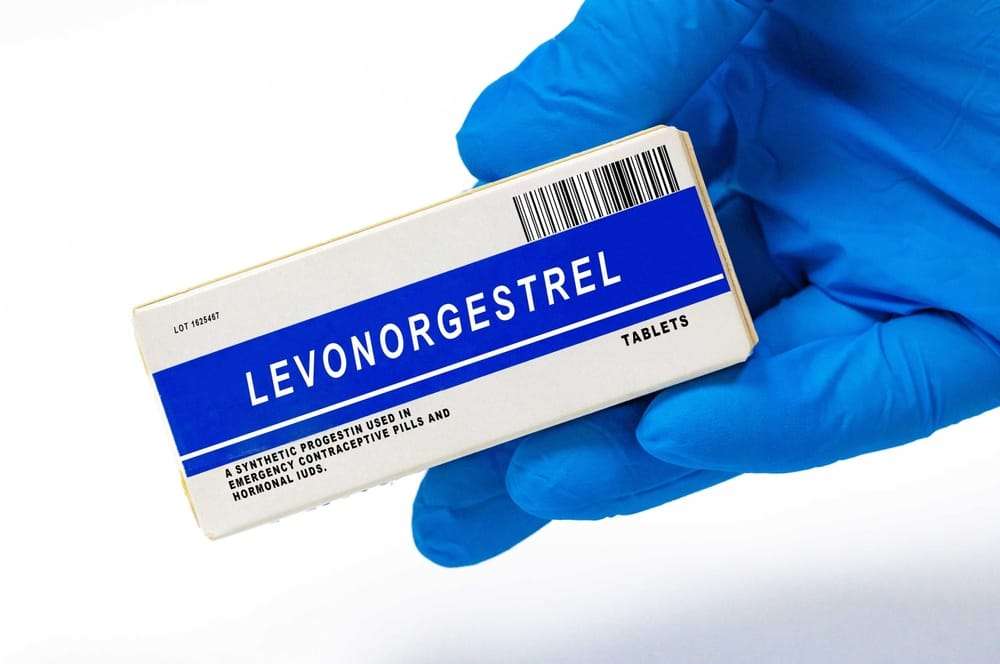No products in the cart.

Levonorgestrel Effectiveness: How Well Does the Emergency Contraceptive Work?
Unplanned situations can occur anytime, and knowing how to respond is crucial. One of the most trusted forms of emergency contraception available today is Levonorgestrel, a synthetic hormone designed to prevent pregnancy after unprotected sex or contraceptive failure. Understanding Levonorgestrel effectiveness can help women make informed decisions and use it correctly for the best results.
What Is Levonorgestrel?
Levonorgestrel is a progestin-only emergency contraceptive pill, often referred to as the “morning-after pill.” It’s widely used across the world and available under several brand names, such as Plan B One-Step, Levonelle, or Unwanted-72 in India.
This medication works by preventing or delaying ovulation — meaning the egg is not released from the ovary, and therefore cannot be fertilized by sperm. In some cases, it may also prevent fertilization or implantation if ovulation has already occurred.
How Does Levonorgestrel Work?
Levonorgestrel primarily works in three ways, depending on when it’s taken in relation to your menstrual cycle:
- Prevents Ovulation – It stops the release of an egg from the ovary.
- Inhibits Fertilization – It thickens cervical mucus, making it harder for sperm to reach the egg.
- Prevents Implantation – It alters the uterine lining, preventing a fertilized egg from attaching.
It’s important to note that Levonorgestrel is not an abortion pill. It won’t terminate an existing pregnancy and is most effective before ovulation occurs.
When Should Levonorgestrel Be Taken?
Timing is critical for the success of emergency contraception. Levonorgestrel should ideally be taken as soon as possible after unprotected sex.
- Within 24 hours: Up to 95% effective
- Within 48 hours: Around 85% effective
- Within 72 hours (3 days): About 58% effective
Although some studies suggest minor effectiveness up to 120 hours (5 days), it’s best to take it within 72 hours for maximum protection.
Levonorgestrel Effectiveness in Real-Life Use
Clinical trials and real-world data show that Levonorgestrel is highly effective when used correctly and promptly.
However, its success depends on several key factors:
1. Timing of Use
The sooner you take the pill, the higher the chance of preventing pregnancy. Waiting longer reduces effectiveness because ovulation might occur.
2. Body Weight or BMI
Some studies suggest that Levonorgestrel may be less effective in women with a BMI above 30. In such cases, a different form of emergency contraception, such as ulipristal acetate or a copper IUD, might be more reliable.
3. Menstrual Cycle Timing
If you have already ovulated, Levonorgestrel may not prevent pregnancy because it cannot stop fertilization after the egg is released.
4. Drug Interactions
Certain medications — especially anti-seizure drugs, antibiotics like rifampicin, or herbal supplements like St. John’s Wort — can lower Levonorgestrel levels in your blood, reducing its effectiveness.
What Affects Levonorgestrel Absorption and Efficiency?
For the pill to work properly, it must be absorbed fully by your body. Vomiting or diarrhea within 2 hours of taking Levonorgestrel can prevent full absorption. In that case, another dose should be taken.
It’s also best to avoid alcohol, as it can increase dehydration or cause nausea, making it harder for your body to process the pill effectively.
Common Side Effects of Levonorgestrel
Like all medications, Levonorgestrel can cause mild side effects. Most of these are temporary and go away within a few days.
Common side effects include:
- Nausea or vomiting
- Fatigue or dizziness
- Headache
- Breast tenderness
- Irregular bleeding or spotting
- Temporary changes in your next period (it may come earlier or later than usual)
If your next period is delayed by more than a week, take a pregnancy test to confirm that the pill worked.
How Often Can Levonorgestrel Be Used?
Levonorgestrel is meant for emergency use only, not as a regular contraceptive method.
Frequent use can cause hormonal imbalance and irregular periods.
If you find yourself needing emergency contraception more than once every few months, it’s better to switch to a regular birth control method such as oral contraceptive pills, implants, or intrauterine devices (IUDs).
Comparing Levonorgestrel With Other Emergency Contraceptives
| Method | Time Frame | Effectiveness | Prescription Needed | Notes |
|---|---|---|---|---|
| Levonorgestrel (Plan B/Unwanted-72) | Up to 72 hours | 85–95% | No | Best if taken within 24 hours |
| Ulipristal acetate (EllaOne) | Up to 120 hours | 98% | Yes | Works better close to ovulation |
| Copper IUD | Up to 5 days | >99% | Yes | Long-term prevention; most effective |
While Levonorgestrel effectiveness is excellent when taken early, ulipristal acetate or a copper IUD can be better for those who miss the 3-day window.
Who Should Not Take Levonorgestrel?
Levonorgestrel is generally safe for most women, but you should avoid it if:
- You are already pregnant
- You have severe liver disease
- You have an allergy to Levonorgestrel or its ingredients
- You are taking medications that reduce its effectiveness
If unsure, consult a healthcare provider or pharmacist before taking it.
Precautions Before and After Taking Levonorgestrel
Before taking:
- Confirm you are not already pregnant
- Check the expiration date
- Take the pill as soon as possible after unprotected sex
After taking:
- Monitor for side effects or bleeding changes
- Use a condom or other protection until your next period
- Take a pregnancy test if your period is delayed
Does Levonorgestrel Affect Future Fertility?
No — Levonorgestrel does not affect future fertility. Once the pill leaves your system, your menstrual cycle will normalize, and you can become pregnant again if you have unprotected sex later.
Levonorgestrel and Your Next Period
Your period might come earlier or later than expected after taking Levonorgestrel. This happens due to hormonal shifts. Most women get their next period within three weeks.
If your period is delayed beyond seven days, take a pregnancy test just to be sure.
Frequently Asked Questions (FAQs)
1. How effective is Levonorgestrel if taken within 24 hours?
If taken within the first 24 hours after unprotected sex, Levonorgestrel can be up to 95% effective. The earlier it’s taken, the better it works.
2. Can I take Levonorgestrel twice in one month?
Yes, you can, but it’s not recommended as a regular birth control method. Frequent use can cause irregular bleeding and hormonal changes.
3. What if I vomit after taking Levonorgestrel?
If you vomit within 2 hours of taking the pill, take another dose as soon as possible to ensure it works effectively.
4. Can Levonorgestrel prevent sexually transmitted infections (STIs)?
No, Levonorgestrel only prevents pregnancy. It does not protect against STIs. Use condoms for dual protection.
5. Is Levonorgestrel available over the counter?
Yes, in most countries, including the UK, Levonorgestrel emergency contraceptive pills can be purchased without a prescription from pharmacies.
6. Can overweight women use Levonorgestrel?
Yes, but studies show it may be less effective for women with a BMI above 30. In such cases, a copper IUD or ulipristal acetate may offer better protection.
7. Can Levonorgestrel delay my next period?
Yes, it can. Your next period may come a few days early or late. If your period is delayed more than a week, take a pregnancy test.
8. What happens if I’m already pregnant when I take Levonorgestrel?
If you’re already pregnant, Levonorgestrel will not harm the existing pregnancy but also won’t terminate it. It simply won’t work in that situation.
9. Is it safe to use Levonorgestrel during breastfeeding?
Yes, it’s considered safe during breastfeeding. Only a small amount passes into breast milk, and it doesn’t harm the baby.
10. How long does Levonorgestrel stay in your system?
Levonorgestrel remains active in your body for about 5 days, after which it’s metabolized and excreted naturally.
Final Thoughts
When used correctly and promptly, Levonorgestrel is a highly reliable and safe emergency contraceptive option for women. It gives a second chance to prevent pregnancy after unprotected intercourse and provides peace of mind during stressful moments.
However, remember that Levonorgestrel effectiveness depends heavily on how soon it’s taken, body weight, and proper use. Always read the instructions carefully and consider regular birth control for ongoing protection.
If you’re unsure about which emergency contraception is best for you, it’s always wise to consult a healthcare professional.
Emergency contraception is a backup — not a replacement — for consistent and safe birth control methods.
Understanding your options and acting quickly can make all the difference in your reproductive health journey with Levonorgestrel effectiveness as your trusted ally.

